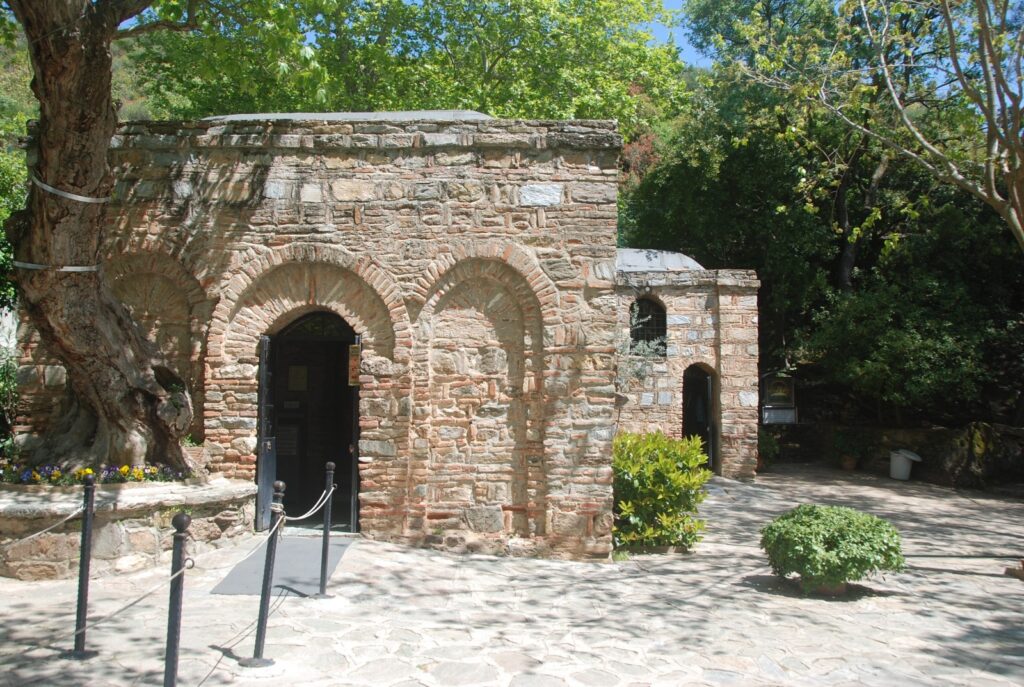Ephesus is one of the most important ancient cities in Turkey and one of the main tourist destinations in the country.
Located in the Asia Minor region, close to the coast of the Aegean Sea, the city has a rich and fascinating history that dates back thousands of years.
Founded by the Ionians in the 10th century BC, Ephesus was a prosperous and important city in Ancient Greece.
During the 1st century BC, the city was conquered by the Romans and became the capital of the province of Asia. It was during this period that Ephesus reached its peak, with a population of over 200,000.
Knowing the History of Ephesus

< strong>Image source: Google
The city of Ephesus was known for its grand architecture and cultural richness. One of the most famous sights is the Celsus Library.
An imposing marble structure that housed one of the greatest collections of books in antiquity.
Another attraction is the Grand Theater, an amphitheater with a capacity of 25,000 spectators that was used for theatrical performances and public events.
In addition, Ephesus was also an important religious center. The Temple of Artemis, one of the Seven Wonders of the Ancient World, was dedicated to the Greek goddess of hunting and fertility.
The city was also home to the Temple of Hadrian, dedicated to the Roman emperor of the same name.
How is Ephesus Currently
Today, Ephesus is a fascinating archaeological site that offers visitors the opportunity to explore the ruins of the ancient city.
Tourists can walk along the marble streets, admire the remains of buildings and imagine what life was like in those remote times.
In addition, the city is an important place of religious pilgrimage for Christians, as it was there that Saint John the Evangelist wrote his gospel and where the Virgin Mary would have spent her last years.
The Casa de Maria, where she is believed to have lived, is a sacred place for the faithful and receives thousands of visitors every year.
In short, Ephesus is a trip back in time that offers visitors the opportunity to immerse themselves in the history and culture of the ancient city.
Whether you are an archeology enthusiast or simply interested in learning more about the past, Ephesus is a must-see destination.
10 wonderful attractions in Ephesus
1. Library of Celsus: One of the most famous buildings in Ephesus, this library was built to house around 12,000 parchment scrolls. It is a stunning example of Roman architecture.
2. Theater of Ephesus: With a capacity of 25,000 people, this theater is considered one of the largest theaters of its time. It is evidence of the splendor of the city in the past.
3. Temple of Artemis: one of the seven ancient wonders of the world, the Temple of Artemis was one of the largest and most impressive temples of antiquity.
4. Marble Streets: The streets of Ephesus were paved with marble slabs, which made the city even more impressive. Walking through these streets is like taking a trip back in time.
5. House of the Virgin Mary: Jesus’ mother is believed to have lived in Ephesus during her last years of life. The house where she supposedly lived has become an important pilgrimage site.
6. Temple of Hadrian: Built in honor of the Roman emperor Hadrian, this temple is an outstanding example of Roman architecture in Ephesus.
7. Agora of Ephesus: the agora was the commercial and political center of Ephesus. Today, you can see the ruins of this important area of the city.
8. Trajan’s Column: One of the few columns still standing in Ephesus, Trajan’s Column was built in honor of the Roman Emperor Trajan.
9. House of Love: this house got its name from a fresco depicting Eros, the god of love. It is one of the best preserved houses in Ephesus.
10. Hadrian’s Temple: This temple was built in honor of the Roman Emperor Hadrian and features a detailed and well-preserved façade. It is a stunning example of Roman architecture in Ephesus.
Culinary Highlights in Ephesus
Ephesus, an ancient Greek city located in Turkey, has a rich cuisine that mixes Greek, Turkish and Mediterranean influences. Some of the culinary highlights in Ephesus include:
1. Pide bread: A traditional Turkish bread, similar to pita but with an elongated shape. It is served with a variety of sides such as meat, cheese or vegetables.
2. Meze: A selection of small dishes, similar to tapas in Spain, served as pre-meal aperitifs. They can include dishes such as olives, cheeses, fish, marinated vegetables and herbal yogurt.
3. Kuzu Tandır: A traditional dish of Turkish cuisine, Kuzu Tandır is made with lamb slow roasted in a clay oven. The meat is tender and juicy, with a smoky flavor and traditional seasoning.
4. Dolma: A typical dish of Mediterranean cuisine, Dolma consists of stuffed foods such as grape leaves or peppers. The stuffing is usually made with rice, ground meat, onion, spices and herbs.
5. Baklava: A very popular dessert in Turkey, Baklava is made with thin layers of phyllo dough, crushed walnuts and sugar syrup.
It is baked until crispy and then drizzled with sugar syrup, resulting in a decadent, super-tasty treat.
These are just some of the culinary highlights in Ephesus. The city offers a wide variety of authentic dishes and flavors that reflect its rich history and culinary heritage.
How to Legally Access Ephesus
To have legal access to Ephesus, the trumpet does not need many requirements. However, it is important to have a valid passport.
In addition, you may need to apply for a tourist visa prior to your trip, depending on your country of origin.
It is recommended to check with the nearest Turkish Embassy or Consulate for the most up-to-date information on tourist visa requirements.
At the time of the visit, it is also necessary to respect local rules and regulations and follow local guidelines to ensure legal and safe access to Ephesus.


